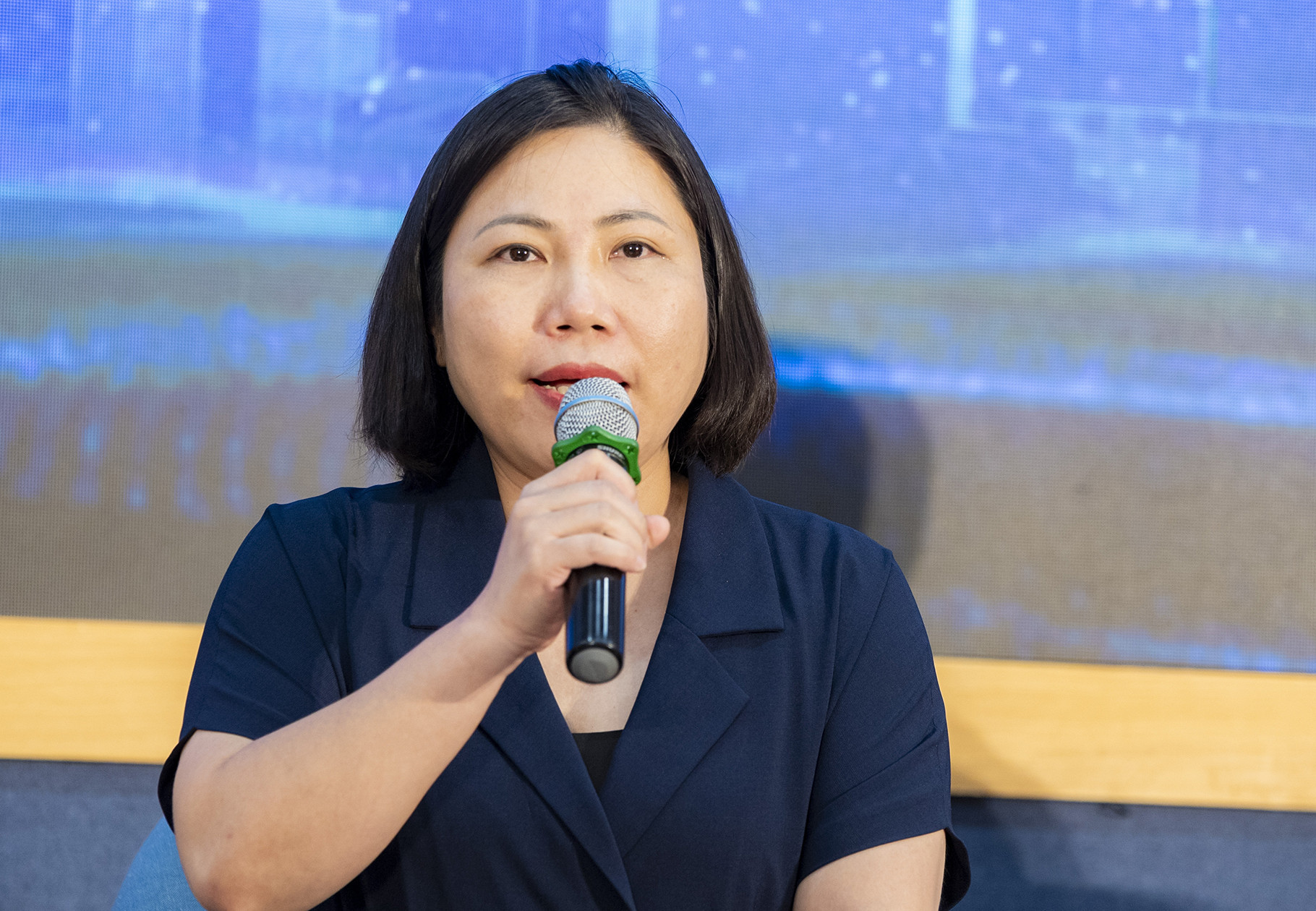
Pham Thi Ngoc Thuy, Director of the Office of the Private Economic Development Research Board (Board IV), said over the last nine years of working with the private sector, she has been preoccupied with a key question: how to effectively connect foreign invested enterprises and domestic private enterprises with the national economy.
Recently, the Party and the State issued resolutions in many fields, from science and technology, digital transformation to economic diplomacy. In this new context, the decisive factor is people, i.e., a workforce capable of execution.
“Therefore, while continuing to implement existing tasks, we are proactively engaging in deeper connection efforts, especially in implementing Resolution 57,” Thuy said.
Thuy said three key issues must be addressed: science and technology, innovation, and digital transformation. It is necessary to clearly define where the capability gaps are, and what types of people Vietnam still lacks.
There is a severe shortage of personnel with deep expertise in science and technology. In recent years, emerging topics like emissions reduction and green transformation have gained prominence, but the pool of experts and high-quality personnel remains insufficient.
In digital transformation, despite a relatively abundant IT workforce, enterprises, especially state-owned, still lack suitable personnel. The private sector lacks “professional” managers, or those with deep expertise who understand digital transformation and are equipped with modern operational knowledge and skills.
In the public sector, under strong transformation pressure, there is a significant shortage of human resources. Concepts like “data-driven administration” and “citizen-centric” approaches are being introduced, but the question remains: who will implement these strategies?
“For a long time, we’ve placed a heavy burden of digital transformation on IT personnel, but now we see a critical lack of experts in business process restructuring, a vital element in any transformation,” Thuy noted.
Chu Duc Trinh, Rector of the University of Technology under the Vietnam National University Hanoi, said: “Resolution 57 may have a time limit, but its spirit is eternal as it always has guiding value. Every citizen must apply science and technology to their work, to simplify processes and improve efficiency – that is the most practical public policy to improve social value and national productivity.”
FPT’s CEO Nguyen Van Khoa commented that Resolution 57 is a revolution, opening vast opportunities for the nation, especially in science, technology, and human resource development.
He hoped that with the involvement of many enterprises, particularly tech companies, by 2045, Vietnam will have world-class managers, helping build a developed nation grounded in science and technology.
Van Anh